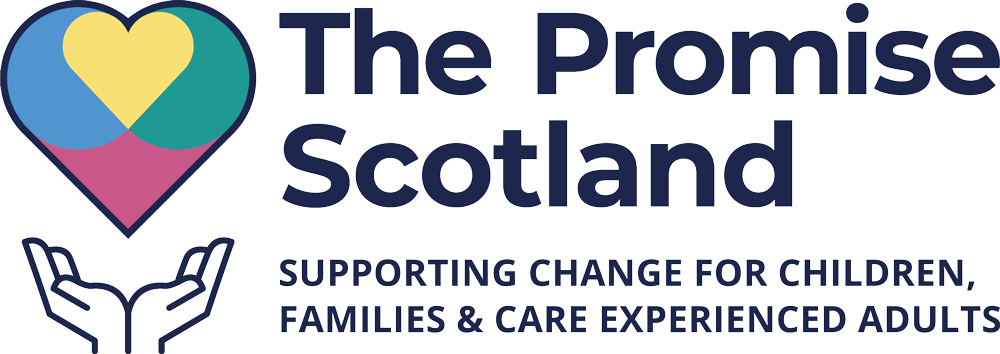Doing Data Differently
Part of: Supporting you to keep the promise
At The Promise Scotland we are working to find a way of doing data differently— so that everyone has the information they need to be able to keep the promise.
At its heart, doing data differently is about making sure that data used for decision making focuses on what children, young people, care experienced adults and their families have said matters most to them.
It’s about identifying the data which can make the positive changes which they need in their life.
And it’s about finding ways for those responsible for monitoring and making change to use this data as part of their work.
More on Doing Data Differently
The Promise Data Map
The Data Map shows the types of data organisations working to keep the promise collect and hold— on children, young people, and their families.
Information Sharing Project
The Promise Scotland is currently involved in a partnership project around information sharing.
Data means information about children, young people, care experienced adults, and their families.
It’s not just statistics. Numbers, words, stories and pictures can also be data, and so can any qualitative information.
What matters is that there are enough different types of information to show a rounded picture of a person’s life: full of experiences, information on relationships, and reflecting how they feel.
It about knowing what happens on their journey— not just tracking outcomes, or only knowing what happened at a certain point.
For example, it’s not enough to only know how many children are in care. Changes in that number don’t say anything about the support families are getting to stay together, or the support provided to children and young adults as they move through care.
Alongside the number of children in care, information is needed to show whether children and young people are in the best place for them, with the care they need— and that requires a shift from just counting numbers to using information to understand and meet needs.
Unfortunately, the way Scotland holds and records data right now isn’t – for the most part – built around what matters to children, young people and their families. Instead of showing a rounded picture, Scotland has data that matters to the ‘system’.
This data might be held for scrutiny reasons, or to help apply for funding, or to help people in their jobs more broadly.
These things are all important, but they aren’t enough on their own.
There also needs to be a way of using data built around what matters to people. This needs to exist for people in the workforce to be able to make the decisions which help to keep the promise.
Data has a huge impact. It can change how children are supported. It forms how decisions are made on families. It even influences politicians in how to shape national work.
But changing the types of data that people have access to is not simple. There are different systems and software, and this leads to disjointed information which only captures snapshots of people’s lives. It also makes it hard to share data to join things up.
The key issues with the way data is captured and used at the moment are as follows:
- There is a lack of data on how it feels to move through the ‘care system’
- Data doesn’t always join up moments in a person’s life
- Data doesn’t always join up across ‘the care system’ as a whole
- Information isn’t always shared across organisations
- Scotland’s data is heavily focused on outcomes at the expense of experiences.
This leads to people needing to re-tell their stories multiple times, and means people with care experience often don’t feel enough ownership over their life story and their data.
Working with partners
Children, families and care experienced adults want better experiences. So, we are working with partners to improve the way data is stored, used and shared. We do this in the following ways:
Promise Story of Progress
To understand progress on all conclusions of the Independent Care Review, there are three questions that need to be answered:
- Does the ‘care community” feel the impact of the promise being kept?
- How are organisations doing in their work to keep the promise?
- How is Scotland doing in its progress towards keeping the promise?
The answers to the three questions make up The Promise Story of Progress.
Data Map
Data can be anything from national level statistics, down to the types of things someone writes in a notebook.
Scotland collects and holds a lot of data already on children and families— so much in some places that the workforce are struggling to keep up with reporting. To help fix this, we need to understand where data exists, and what it means in relation to other data captured.
So we've created a platform which can show types of data different organisations hold. It can be used as a tool to help organisations see if they have gaps in their data, and how to fill them.
Information Sharing Project
This partnership project with the Data for Children Collaborative looks to understand and overcome barriers in data and information sharing relating to care experienced children, across public sector agencies and organisations in Scotland.
Doing Data Differently Podcast
The Promise Scotland Podcast: Doing Data Differently
For Scotland to keep the promise, it needs to do data differently. Find out why through downloading The Promise Scotland's podcast.
The Promise Scotland Podcast Video: Doing Data Differently
For Scotland to keep the promise, it needs to do data differently. Find out why in this video version of The Promise Scotland's podcast.
